DS Group pledges support for sustainable packaging
The Noida-based conglomerate takes initiative to minimise the use of plastic and hosts a seminar on sustainable packaging. Rahul Kumar reports.
08 May 2020 | By Rahul Kumar
Reports suggest that only 60% of the total plastic waste is being recycled. This, of course, poses a serious threat to the environment, particularly the water bodies. A significant amount of toxic heavy metals like copper, zinc, lead, and cadmium from plastic wastes from seashores have an adverse effect on the coastal ecosystems. Against this backdrop, taking the initiative to minimise the use of plastic, Noida-headquartered Dharampal Satyapal Group, popularly known as DS Group, organized a daylong seminar titled ‘Sustainable packaging: A way forward’ on 24 February 2020.
The event saw experts from the industry, manufacturers, and policy-makers meaningfully engage on the subject of recycling and management of plastic waste. The event also offered the industry players a platform to exchange best practices and share the work being done to address the issue, including plastic recycling and waste management options.

A multi-diversified conglomerate with a presence in high-growth sectors, DS Group was founded in 1929. Its product portfolio has evolved over the years with an undeterred pursuit for quality and innovation. It has a strong presence in FMCG sectors, such as mouth fresheners, tobacco, confectionery, dairy, salt, spices, and beverages. The company also has interests in hospitality, packaging and agribusiness.

Corporates also have a social responsibility
In the opening address, Sanjay Gupta, head of packaging development, procurement functions, DS Group, said the company believes that as a responsible corporate, along with maintaining a commercially-viable, sustainable and innovative business model, it is also its social, ethical and moral responsibility to take steps to save the planet and its ecosystem.
“DS Group is committed to its mission green. This event is a step towards this direction,” he said.
He further talked about how the company has also started other eco-friendly initiatives such as conservation of natural resources like water, use of solar and renewal energy, reduction of carbon footprints in the entire of the supply chain, right from packaging, manufacturing, logistics, housekeeping, and construction and settlement of plastic waste generated from packaging material through EPR model to facilitate circular economy.
“These initiatives have also helped social and structural economic transformation, but there is much more to do and that’s why we are here,” Gupta added. “There is a saying that if we sweat more in peace than we will lose less blood in the war. So, it’s high time for all of us to set our houses in order so that we and our next generation can see a better, cleaner, safer and healthy tomorrow. We believe it will be one of the best gifts we can give them.”

Gupta reiterated that sustainable packaging is not the responsibility of packaging converters alone. One of the important aspects of sustainable packaging is the socio-economic status and convenience, which goes beyond packaging.
Thus, the event also discussed government policies, legislation framework, compliances, circular economy, recyclability and structure systems, barrier coatings, and so on.
Chitresh Gupta of DS Group, along with Sanjay Bhatia, MD, Hindustan Tin Works, formally inaugurated the event by lighting the lamp.

All stakeholders will have to drive the change
CK Sharma, business head, mouth freshener division, DS Group, in his welcome address, said the dream of sustainability requires a deep understanding and recognition of the urgency to change. “It is a movement towards a common goal and an environment that is free from plastic waste. We may have changed so much and yet so much will have to change. It is all on us, this generation, to tackle the situation created by past industrial and domestic practices. It is a reminder for all of us to stop looking at other ways. There is indeed no alternative to action,” he added.
Sharma said that everyone, including the packaging converters, will have to drive the change to make this movement into a national civic duty. “Change is just not good anymore. It is imperative. We certainly have to get away from greed and the responsibility normally associated with corporate business,” he said, adding, “The weapon of innovation and the formula of success have to be applied equally if not more to the cores of sustainability. Businesses can’t be overwhelmed by the quarterly results and governments can’t be worked for next elections.”

Urging all stakeholders to take responsibility for sustainability, Sharma said the industry has to do more and so do the government. “Unfortunately, no politician around the globe is looking beyond four to five years. Such thinking is hopelessly inadequate in the context of sustainability. The future of life on earth depends on the actions governments take. Around the world, many individuals are doing whatever they can, but the real success can only come if there is a change in our society, in our economics, and in our politics — societies in terms of attitudes and economics in terms of investments. An investment cannot be called an investment if it destroys the planet,” he said.
He quoted popular environmentalist Robert Swan, saying that the greatest threat to our planet is the belief that someone else will save it. “We must understand two facts — one, there is no plan B, and two, this is one of the corporate problems where we cannot throw money and get away with it,” he said.
On a positive note, Sharma added that heightened public awareness and environment concern is indeed changing consumers’ perception and expectations for quality and safety. “This is linking social good to business good. Today, protecting food products, prolonging shelf lives, and reducing costs are imperatives,” he said.

Policies should be in sync with economics
Addressing the gathering, Anshu Dewan, DS Group, spoke about the cobra effect. When the British moved the capital from Kolkata to Delhi, they found an infestation of a cobra. So the government decided to use the power of people to address the problem and starting offering money to anyone who can get a cobra head. In the first nine-month, the authorities collected tonnes of cobra heads. But the infestation was far from gone. Instead, the number of cobras seemed to have increased. Then the authorities found out that when the people started getting money, they started breeding cobras in their houses instead of going to the forest and putting their lives in danger.
“This is one small example of how if your policy is not in sync with economics, or incentives are not allied correctly, it can result in unintended consequences. The government and policy-makers should look at ways to incentivize people so their behaviour turns towards the right direction,” Dewan said.
Explaining the consequences, Dewan spoke about the economic concept of externality. “According to it, your profits are private but the consequences of driving those are social,” he said.
Towards sustainable packaging
In his keynote address, Sanjay Bhatia of Hindustan Tin Works highlighted how packaging as a concept has evolved and changed with the changing needs of society in subsequent generations, and the process is still on.
Speaking on the challenges of the management of plastic waste, Sunil Bhagwat, VP, HPPL stressed on the need to have a common central policy, instead of individual state policies. He also stressed on the need to clarify the definition of single-use plastic. He said that multilayer plastic is no single-use plastic. He added that challenge in waste management occurs as the country has different regulators such as Moff, BFS, FSSAI, NGT, among others.
Speaking on sustainable solutions to the plastic waste pollution, Jeevaraj Pillai, joint-president, packaging and new product development, Uflex, highlighted the company’s recycling effects and the technology it has employed to do so. “We are working hard to provide solutions for sustainable packaging to the world. There are three stakeholders for 360 degrees sustainable approach, the government, the industry, and the consumer,” he said.
Shailesh Nema, the vice-president and managing director, Michelman, spoke on water-based coating applications for sustainable Packaging. “India generates more than 1.5-lakh metric tonnes of solid waste every day. Only 20% of this collected waste is processed, while the remaining 80% is dumped into landfills,” he said.
Jayant Jain, associate professor, IIT, Delhi, discussed metallic material for sustainable packaging and said that stainless steel foil is one of the best solutions for sustainable packaging as it is 100% recyclable. However, there is no manufacturer of stainless steel foil at the moment. He also stressed on the Five Rs of sustainable packaging — remove, reduce, reuse, recycle and recover.
Ruturaj Kamthekar, director, product development, HPPL, discussed the sustainable packaging strategy adopted by the company. He said that Huhtamaki’s sustainability agenda for flexible packaging includes three points — make packaging ready for the circular economy; focus on cost-competitive and value-added solutions, and engage and collaborate.
Speaking on value enhancement through sustainable packaging, Sanjeev Yadav, director, Jindal Poly Films, said the company is coming up with one BOPEE and one CPP line by April 2020 and March 2020.
On the last presentation of the day, Ajay Kumar Nema of Constantia spoke on achieving sustainable packaging through recyclable mono-poly structuring. “Nature has been flexible with us and it’s time we reciprocate,” he concluded.
Simin Askari, VP, HR, tendered vote of thanks. Finally, JD Desai, senior VP, DS Group, one of the senior-most and respectable authority at DS and industry concluded the above seminar by giving his vote of thanks to all attendees expecting to have commercially viable sustainable solutions.


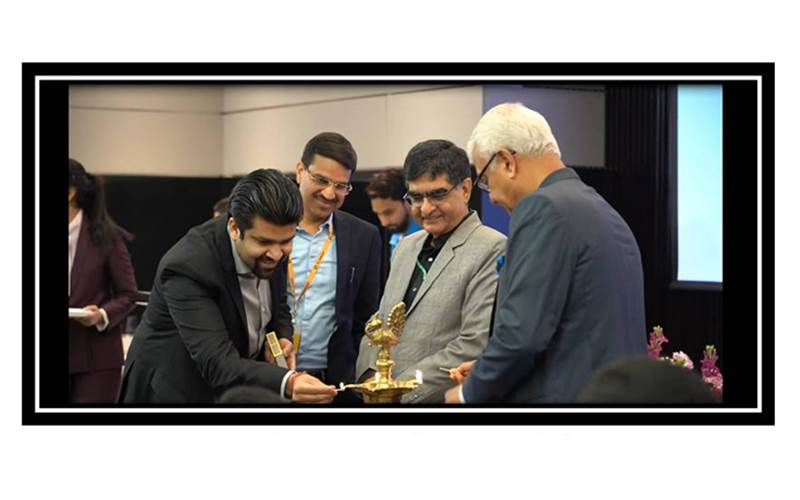
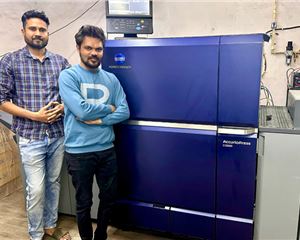
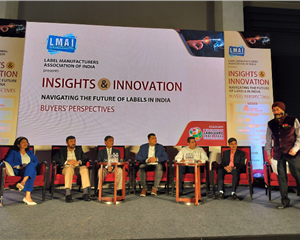
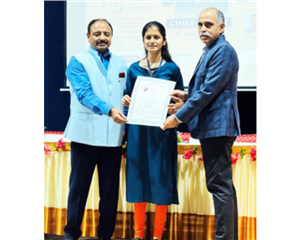
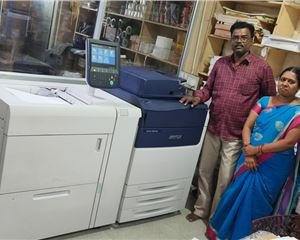







 See All
See All